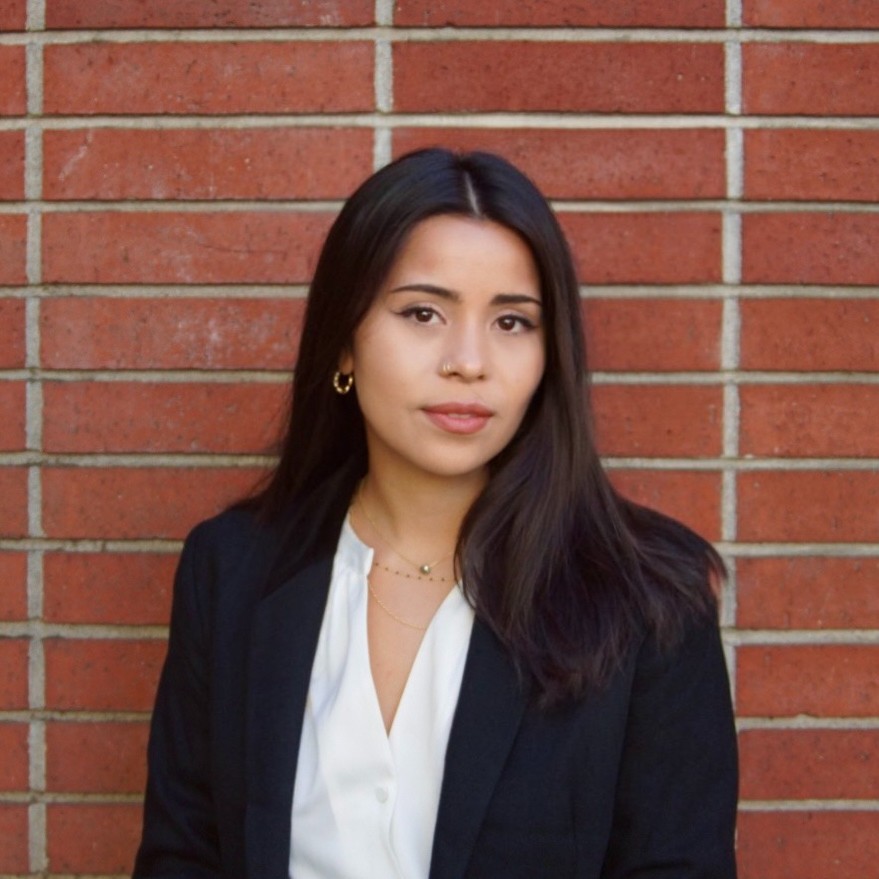In 2020, Taylor Dang began medical school with plans to become a naturopathic physician. She was passionate about healthcare and was actively involved in political advocacy centered around health justice. However, as one of few students of color in her cohort, Taylor felt isolated at medical school and began rethinking the change she might be able to affect as a doctor. She made the call to withdraw from medical school and identify another path in healthcare. Taylor is now a graduate of the MS in Health Informatics program at Weill Cornell Medicine (WCM), where she has found a way to pursue advocacy through the lens of healthcare systems and information.
“It took deep reflection to understand that my main goal is to address the inequities and injustices in healthcare,” Taylor explained. She discovered the program at WCM while working for NewYork-Presbyterian (NYP) in 2022, after withdrawing from medical school. “I had envisioned that a doctor could deliver equitable health care practices to one patient at a time. However, with this program, I could potentially improve healthcare delivery on a larger scale using data, research, and policy changes.”
In her coursework, Taylor was able to lead projects that reflected her lived experiences and passions. In 2019, her father had a stroke, and she became his full-time caretaker. Taking on that role and navigating his care was incredibly challenging. She also volunteered at a veteran’s hospital and witnessed how many patients struggled to manage their care independently.
Inspired to help people with that experience, she developed an app to support caretakers in her Clinical Informatics course, taught by Dr. Sameer Malhotra, clinical associate professor of medicine, and Dr. John Chelico, adjunct assistant professor of population health sciences. The app is connected to patients’ medical records and aids caretakers in rehabilitating stroke patients through pharmacy management, nutrition plans, scheduling tools, and more.
“My team encouraged me to lead this project because they were supportive of the lived experience I had to inform the project,” she said. “We were recommended to apply for a government grant to build out the app and develop it, which I hope to do in the future.”
Similarly, in her Natural Language Processing (NLP) course, taught by Dr. Yifan Peng, assistant professor of population health sciences, she and her team developed a combination fact-checking and persuasion detection model to determine the reliability of online health information. The tool is designed for general audiences to find trustworthy resources to inform their healthcare decisions.
One of Taylor’s favorite courses was Health Information Standards & Interoperability with Dr. Jyotishman Pathak, chief of the Division of Health Informatics and Frances and John L. Loeb Professor of Medical Informatics.
“Dr. Pathak really challenged us all in our professionalism,” she explained. “He set up an opportunity for us to present our final project in the auditorium, and it felt like a mock professional symposium. He treated us like colleagues in the field, and it was wonderful to push ourselves as students and collaborate in that way.”
Throughout the program, Taylor worked full-time as a dietetic technician in the NICU at the David H. Koch Center at NYP. Though her role is clinical lab-focused, her skills in health informatics have allowed her to find new ways of helping colleagues and patients. While in the program, she developed a tool to help manage patient communications and the workflow of the infant feeding preparation area. She was recognized by senior staff in her workplace for her innovation. Miriam Miller, associate director of career development and employer engagement at WCM, helped her determine how she could leverage momentum from that recognition in her career. With Miller’s advising, Taylor was able to explore career opportunities that utilized both her clinical and newfound informatics skills.
Taylor also developed a strong professional relationship with Dr. Jose Florez-Arango, director of the MS in Health Informatics program. Working full-time as a student was challenging, and she highly recommends that students lean into their personal and professional networks when they need help. She shares that Dr. Florez-Arango was especially proactive in reaching out to students.
“He helped plan my coursework to make it specific to my needs, given my background in medicine. He also customized my curriculum to replace the healthcare courses with more programming support, which I really needed,” she said. “We’re so lucky to have him. I’m grateful that he’s my mentor today.”
As Taylor continues her career in the NICU, she aims to develop sustainable positive change in healthcare. She is considering pursuing medical ethics law and affecting policy and regulation at a higher level. Just as she did for her team at the hospital, she plans to continue creating healthcare systems that support equitable and unbiased care.


